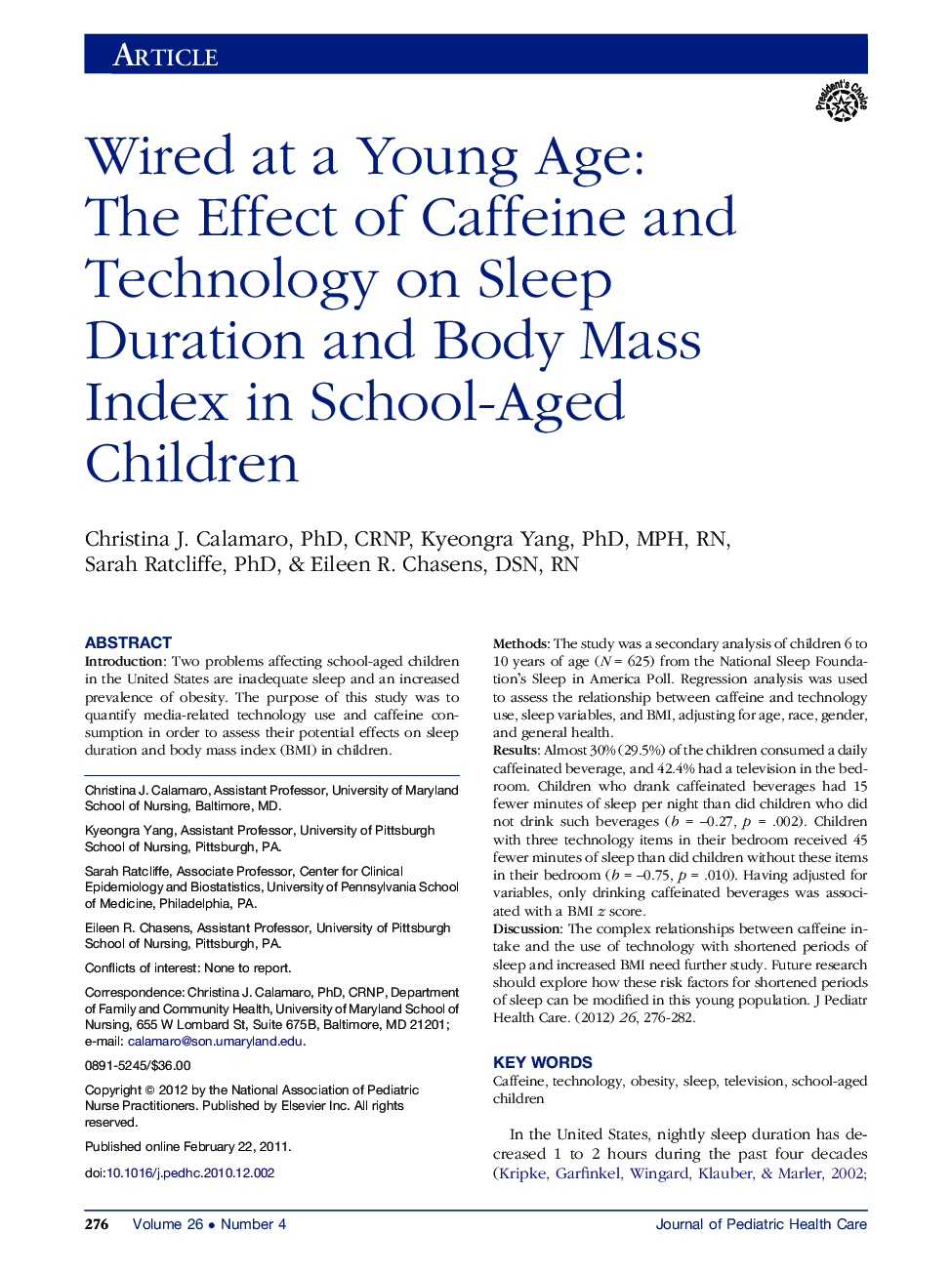| Article ID | Journal | Published Year | Pages | File Type |
|---|---|---|---|---|
| 2662926 | Journal of Pediatric Health Care | 2012 | 7 Pages |
IntroductionTwo problems affecting school-aged children in the United States are inadequate sleep and an increased prevalence of obesity. The purpose of this study was to quantify media-related technology use and caffeine consumption in order to assess their potential effects on sleep duration and body mass index (BMI) in children.MethodsThe study was a secondary analysis of children 6 to 10 years of age (N = 625) from the National Sleep Foundation’s Sleep in America Poll. Regression analysis was used to assess the relationship between caffeine and technology use, sleep variables, and BMI, adjusting for age, race, gender, and general health.ResultsAlmost 30% (29.5%) of the children consumed a daily caffeinated beverage, and 42.4% had a television in the bedroom. Children who drank caffeinated beverages had 15 fewer minutes of sleep per night than did children who did not drink such beverages (b = –0.27, p = .002). Children with three technology items in their bedroom received 45 fewer minutes of sleep than did children without these items in their bedroom (b = –0.75, p = .010). Having adjusted for variables, only drinking caffeinated beverages was associated with a BMI z score.DiscussionThe complex relationships between caffeine intake and the use of technology with shortened periods of sleep and increased BMI need further study. Future research should explore how these risk factors for shortened periods of sleep can be modified in this young population.
